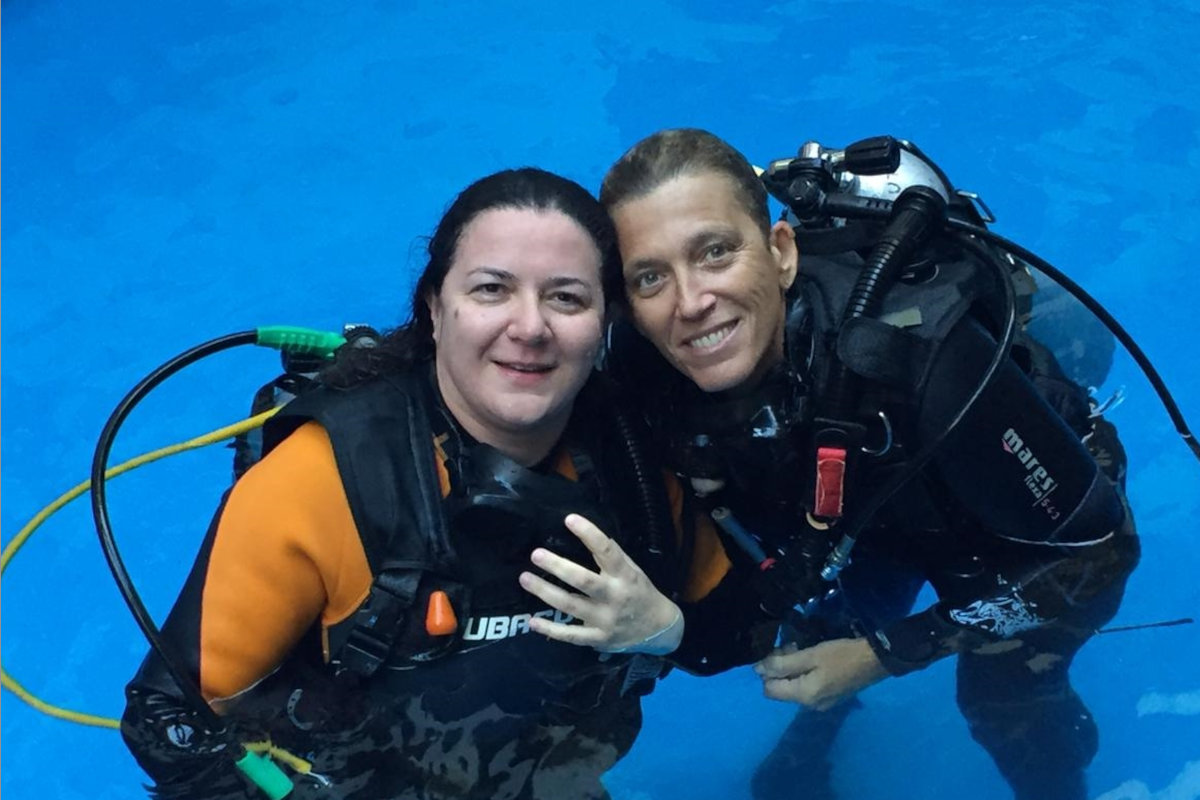Choosing the right diving school is a pivotal decision for anyone eager to explore the underwater world.
Whether you’re a novice diver or someone looking to advance your skills, the quality of instruction you receive can significantly impact your safety, skill development, and overall enjoyment of scuba diving.
This comprehensive guide will provide you with all the essential information needed to select the best diving school that meets your needs, focusing on factors like accreditation, instructor credentials, course offerings, facilities, and location.
Understanding the importance of accreditation
The first and perhaps most critical factor in choosing a diving school is its accreditation status.
Accreditation from a recognized authority ensures that a school adheres to internationally approved standards of safety and education quality.
What is accreditation?
Accreditation is a certification given by authoritative bodies to schools that meet specific standards in their training programs.
This recognition is crucial because it assures students that the institution provides high-quality education that meets the global standards necessary for safe and effective diving.
Key accrediting bodies
Several organizations accredit diving schools, with the most renowned being:
- PADI (Professional Association of Diving Instructors): perhaps the world’s most prominent scuba diving training organization, offering courses from beginner to professional levels.
- NAUI (National Association of Underwater Instructors): known for its rigorous training standards and comprehensive course offerings.
- SSI (Scuba Schools International): focuses on flexible learning systems and practical application, recognized globally.
Benefits of choosing an accredited school
Choosing an accredited school ensures that the curriculum is up-to-date, comprehensive, and safe.
It also means that your certification will be recognized worldwide, which is crucial if you plan to dive in various international locations.
You can also read: Become a Diver: A Journey into the Depths of the Sea
Evaluating instructor credentials
While accreditation is essential, the quality of the diving instruction you receive comes down to the instructors themselves. Experienced and knowledgeable instructors can provide insights and training that go beyond standard practices, enhancing both your safety and enjoyment.
Importance of certified instructors
Certified instructors have undergone a rigorous training process and have met all the requirements set by accrediting bodies to teach diving courses.
Their certification is a testament to their skills and knowledge, ensuring they are well-equipped to teach others.
Experience matters
In addition to certification, consider the experience level of the instructors.
Those who have been teaching for many years or have specialized skills in areas such as deep-sea diving, rescue diving, or technical diving bring invaluable practical knowledge to their students.
Analyzing course offerings
A good diving school should offer a range of courses that cater to various skill levels and interests.
From introductory courses for beginners to advanced classes for more experienced divers, the availability of diverse courses indicates a school’s capability to provide comprehensive training.
Beginner to advanced courses
Look for schools that offer a clear progression path from beginner to advanced levels. This not only helps you develop your skills systematically but also ensures that you can continue learning and advancing without having to switch schools.
Specialized courses
For those interested in specific aspects of diving, such as underwater photography, cave diving, or nitrox diving, it’s beneficial to choose a school that offers these specialized courses.
This specialization indicates that the school can provide expert training in particular areas of diving interest.
You can also read: Technical Diver: A Complete Guide to Equipment and Advanced Techniques
Considering location and facilities
The location of the diving school and the quality of its facilities are also crucial considerations.
The right environment can enhance the learning experience, while state-of-the-art equipment and access to excellent dive sites can make a significant difference in your training quality.
Training facilities
High-quality training facilities with modern classrooms, well-maintained equipment, and professional-grade pools or confined water areas are signs of a reputable school.
These facilities ensure that you can learn and practice in a safe and comfortable environment.
Proximity to dive sites
Schools located near or within easy reach of renowned dive sites provide better practical training experiences.
Direct access to the sea or specific underwater environments, such as reefs, wrecks, or caves, allows for more hands-on diving sessions, which are crucial for honing your diving skills.
Spotlight on Pluto Dive: a case study
Let’s apply these criteria to Pluto Dive, located in Playa del Carmen, Mexico, to see how it stands out as a top-tier institution for both novice and experienced divers.
Accreditation and standards
Pluto Dive is accredited by PADI, ensuring that it meets the highest standards of dive training.
This accreditation guarantees that all courses offered are up-to-date and internationally recognized.
Experienced instructors
The instructors at Pluto Dive are not only PADI certified but also have extensive experience in various types of diving, including the unique cenote dives that the Yucatán Peninsula is famous for.
This expertise ensures that students receive comprehensive training that covers both general and specific diving skills.
Diverse course offerings
Pluto Dive offers a range of courses from beginner to advanced levels, including specialized training for technical diving and cenote diving.
This variety allows divers to continue advancing their skills and exploring new diving disciplines within the same school.
Prime location
Located in Playa del Carmen, Pluto Dive has access to some of the most beautiful diving spots in the world, including vibrant coral reefs and ancient cenotes.
This location not only enhances the learning experience with a variety of dive sites but also attracts divers from all over the globe, adding to the school’s dynamic and diverse environment.
Enroll at Pluto Dive
For those looking to start or advance their diving journey, Pluto Dive offers the perfect combination of professional training, diverse courses, and a stunning location.
Contact Pluto Dive to learn more about their courses and to sign up:
- Visit: 40th Street between 5th and 10th avenues, Playa del Carmen, Mexico.
- Email: plutodive@gmail.com
- Call: +52 984 151 9045 | +52 984 151 9046
In conclusion, selecting the right diving school involves careful consideration of various factors including accreditation, instructor credentials, course offerings, and the location and quality of facilities.
By following this guide, you can ensure that you choose a diving school that not only meets international standards for safety and education but also matches your personal goals and interests in diving.



